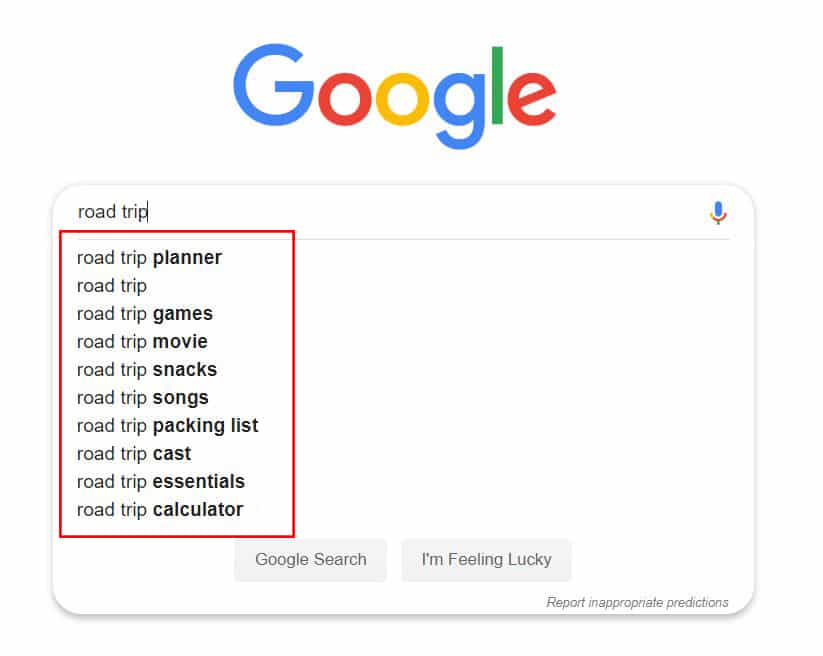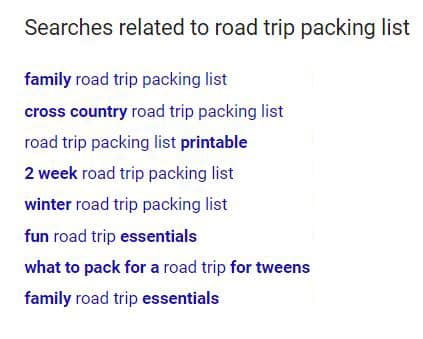Are you struggling to rank for popular keywords in your niche? Are your competitors dominating the SERPs, while your website straggles behind unseen? Does your organic traffic suck?
We’ve got some news for you: if you’re spending loads of time only targeting generic keywords in your niche… you’re wasting time. And you’re missing out on some serious traffic opportunities.
Every website owner’s dream is to get boatloads of free traffic from the most popular keywords. There is no denying that those who are holding the ranks for our dream searches are banking some seriously enviable traffic.
But guess what? They’re counting on two major factors: a competitive domain authority (DA), and a HUGE marketing budget.
Let’s assume you have neither.
If you’re hoping to rank on page one organically for basic short-tail keywords, or, seed keywords, like travel guide, home décor, or healthy recipes… you’re doing it wrong.
So how can you beat your competition and get that coveted organic traffic?
With long-tail keywords.
What is a long-tail keyword?
A long-tail keyword is exactly what it sounds like: a long keyword, typically made up of three to five words. They are an extension of a seed keyword, which is essentially the foundation of a search term.
For example, lose weight would be a seed keyword, whereas lose weight in 10 weeks would be a long-tail keyword. The addition of in 10 weeks narrows down the search results, outputting content that is more targeted than one may find by merely searching lose weight.
Most often, long-tail keywords have a lower search volume than seed keywords, but this is not always the case as you will soon see.
Why should you focus on long-tail keywords?
Because they can drive a ton of organic traffic to your website and significantly increase your leads and conversions!
Listen, unless your website is highly competitive with mega domain authority, you’ll have an extremely hard time ranking for short keywords.
Why? Unless you have the aforementioned DA or a lot of spending money, aka a fast-track way to the top of the SERPs, it could take years (literally) before your hard work shows any results worth mentioning.
Long-tail keywords, on the other hand, are much easier to rank for because there is less competition. If you do your keyword research and create your content around them, you’ll find yourself spending less time optimizing your content and more time admiring your listings on Google.
No, it won’t happen overnight, but it will happen with strategy and patience.
You should focus on long-tail keywords because…
- They are easier to rank for
- You will have an easier time reaching your target audience
- If you are collecting leads and sales, your audience is more likely to convert because their search intent is less generic and more refined
How to find long-tail keywords
Ok, you’re convinced… long-tail keywords are the way to go.
But how do you find them? Here are three of our favorite ways:
1. Google Autosuggestions
The first and easiest way to identify keywords for your blog or website is by using Google’s autocomplete feature. Google is where you want your content to appear, so it’s safe to say their information is on point, right?
All you have to do is start typing in a short keyword, and Google will suggest long(er)-tail keywords.
Let’s say you’re putting together a road trip travel guide and want to find some common long-tail keywords targeting travelers planning their next cross-country adventure.
If you search road trip on Google, the first search engine results will be about the movie Road Trip, as well as big websites like Trip Advisor. Think you can outrank them for that keyword?
Probably not.
However, if you take on one of Google’s less popular search items, such as road trip packing list, you will find that your competitors seem much more within your reach.

Another simple way to use Google for your keyword research is by simply looking at the “People also ask” section after making a search. This is usually located part way through the search engine results page:

We know that Google loves when we put keywords in our headings, so these common questions are a goldmine for breaking up your content with the EXACT questions your target audience wants answers to.
Finally, scroll to the very bottom of the SERP, and you will find ‘searches related to [keyword]’; use these suggestions as well if they are relevant to your content.
All three of these free methods are an incredibly simple way to gain insight into the less searched but equally relevant keywords that you could be using and ranking for.
2. Answer the Public
This tool is an amazing way to come up with a list of long-tail keywords during your research phase.
Answer the Public is a free tool that will help you generate an enormous list of popular searches based on current information. The tool takes your request, analyzes it, and then outputs a map of questions and statements made by real people using your keyword!
It’s like a machine, really, and the results are rather shocking.
The brain map speaks for itself; if you are having trouble coming up with content ideas, let alone keywords, Answer the Public is about to be your new best friend.
Imagine the number of articles a travel blogger can make from this one search!
3. Paid Keywords Explorer (AuthorityLabs)
If you’re serious about upping your SEO game, it may be time to invest in a proper keyword planning tool like our very own, AuthorityLabs. Our tools help digital marketers better position their brands within the search engines using a variety of amazing features that reap invaluable information.
With both, you can study your competitors, research keywords and their volume, competition, etc., compare sites, and most importantly for this discussion, search for relevant long-tail keywords.
Selecting long-tail keywords for content construction
Now that you have conducted your searches, how do you decide which long-tail keywords are best for your content? When working with a digital marketing tool like ours, focus on the search volume or average monthly searches.
In the example above, keywords such as how to lose weight fast, fastest way to lose weight, and how to lose weight in a week are great choices to build content around a very specific topic. The user search intent is clear, in that the average person searching for content surrounding losing weight is interested in time, the duration, the fast-track way to achieve their weight-loss goals.
There were thousands of other keyword variations that would make great content as well, but our advice is to avoid anything with a search volume below 1k.
One of the biggest mistakes that bloggers and website owners make is trying to rank for keywords that they just can’t rank for.
It’s not for lack of quality or ability – it’s purely about the numbers. That’s why longer, well-researched keywords perform much better for smaller websites.
Rather than busting your butt trying to rank for short-tail keywords, try to rank for several long-tail keywords that still have decent volume. The more words you rank for, the more diverse your organic traffic will be – without the impossible competition.

